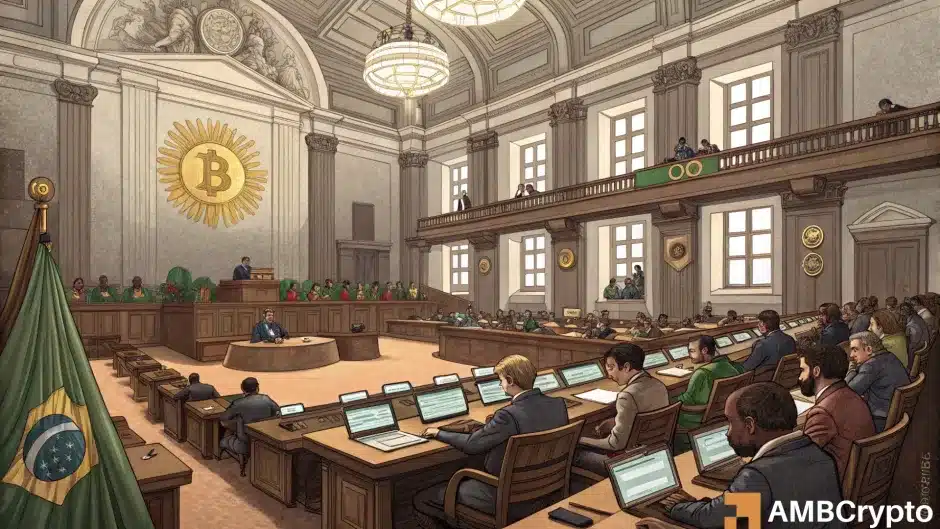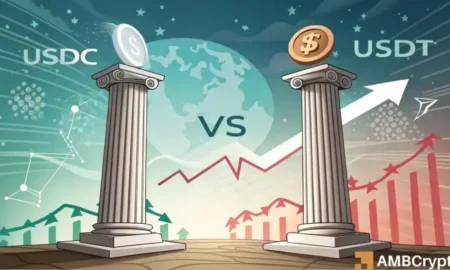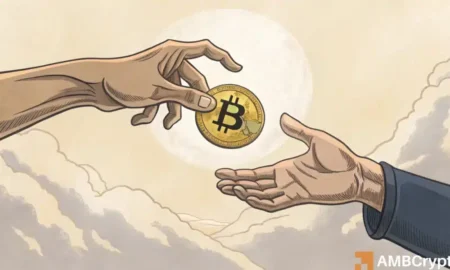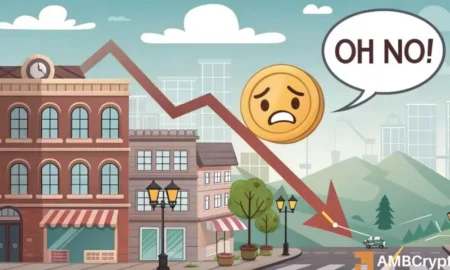Brazil’s Bold Move Toward Bitcoin Reserves: A Potential Game Changer for Crypto
As the global landscape of cryptocurrency evolves, Brazil is making headlines for potentially becoming the largest sovereign holder of Bitcoin (BTC). A pivotal bill, which proposes allocating $17 billion from Brazil’s foreign exchange reserves to Bitcoin, is set for a public hearing on August 20, 2024. If approved, this historic move could solidify Brazil’s status as a frontrunner in national cryptocurrency adoption.
The Proposed Bitcoin Bill
The ambitious proposal was initiated by pro-crypto legislator Eros Biondini in November 2024, advocating for the establishment of a national Bitcoin reserve. Aiming to diversify Brazil’s Treasury assets, the bill would require a minimum of 5% of the country’s foreign reserves—approximately $17 billion—to be invested in Bitcoin and other stable digital currencies. This hearing, open to industry experts and the public alike, is pivotal for soliciting comprehensive feedback from stakeholders, including the Central Bank, the Ministry of Finance, fintech companies, and crypto advocates.
Brazil currently ranks as the ninth-largest economy in the world, boasting nearly $341 billion in foreign exchange reserves. Should the proposal gain approval, Brazil would overtake countries like El Salvador, the UK, and Bhutan as the largest sovereign holder of Bitcoin, positioning itself as an innovative leader in the cryptocurrency space.
Implications for Brazil’s Economy
The upcoming hearing will provide a unique platform for debating the merits and potential risks associated with such a significant investment in Bitcoin. Proponents, such as Pedro Giocondo Guerra, the chief of staff to Vice President Geraldo Alckmin, argue that creating a Bitcoin reserve is essential for Brazil’s economic modernization and resilience against inflation. He refers to Bitcoin as "the digital gold, the gold of the internet," stressing its growing significance in the global economy.
However, the proposal has ignited a mixed response from political and financial circles. Critics, including Nilton David, director of monetary policy at Brazil’s Central Bank, voice concerns that embracing cryptocurrencies into the country’s foreign reserves could be “inappropriate.” The ongoing discourse underscores the delicate balance between innovation and caution in an evolving economic landscape.
Brazil’s Evolving Crypto Ecosystem
Brazil is no stranger to cryptocurrency; it has cultivated one of the most advanced crypto ecosystems in Latin America. The country has also been a pioneer in regulating cryptocurrency investment products, having approved multiple spot cryptocurrency exchange-traded funds (ETFs). Products like FOMO11, DEFI11, and the widely traded HASH11 reflect Brazil’s proactive approach to crypto legislation.
In August 2024, Brazil further expanded its offerings by approving a Solana (SOL) spot ETF. By moving toward the establishment of a national Bitcoin reserve, Brazil is not only embracing digital assets but also solidifying its position as a potential crypto hub within the Americas. The outcomes of the August 20 hearing could pave the way for Brazil to formalize its Bitcoin reserve and encourage further adoption of innovative financial solutions.
Global Trends in National Bitcoin Reserves
Brazil’s possible pivot towards Bitcoin reserves aligns it with a growing number of global entities exploring similar frameworks. States within the U.S., including New Hampshire, Arizona, and Texas, have already passed legislation to adopt Bitcoin as a strategic reserve asset, indicating a trend toward state-held cryptocurrency reserves. Internationally, Kazakhstan has announced its intent to establish a reserve from confiscated Bitcoin, while countries like Pakistan, India, and Sweden are also weighing the prospect of national cryptocurrency holdings.
The worldwide momentum signaling a shift toward national Bitcoin reserves suggests that Brazil’s decision could have far-reaching implications for global acceptance and integration of cryptocurrencies. As Brazil proceeds with its hearing and potential legislative process, the outcome may serve as a bellwether for other nations contemplating similar measures.
The Future of Brazil and Bitcoin
As the 20th of August approaches, all eyes will be on Brazil and the implications of its hearing for the proposed Bitcoin reserve. Should the bill move forward and pass through Congress, Brazil may redefine its financial strategy, embracing cryptocurrency as a mainstream asset class. This bold approach could stimulate interest in crypto investments, enhance financial inclusion, and promote innovation within Brazil’s finance sector.
In summary, Brazil’s exploration into Bitcoin reserves is not just about digital currency; it’s about strategically positioning itself in the rapidly evolving global economy. The upcoming hearing serves as a critical juncture where diverse perspectives will be considered, and the decisions made could have significant impacts on both national and international financial landscapes.
In conclusion, the world is watching as Brazil takes steps toward potentially becoming a leader in sovereign Bitcoin investment. With a focus on modernizing its financial infrastructure, Brazil’s actions may inspire other nations to consider similar pathways, driving a collective embrace of cryptocurrency in mainstream finance.
















